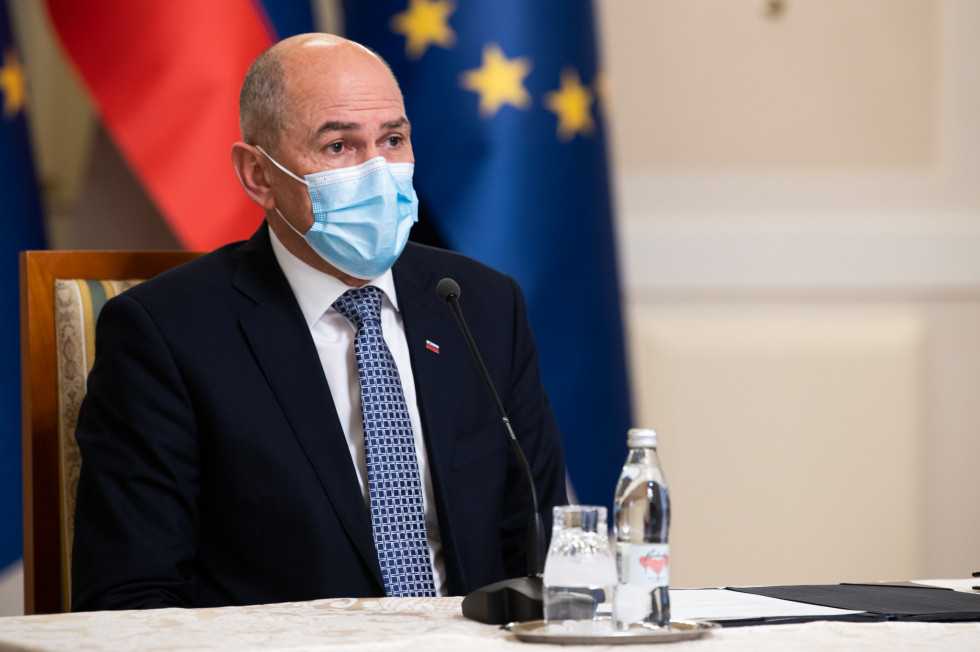By: UKOM
At press conference after the Government session, Prime Minister Janez Janša and Deputy Prime Ministers Zdravko Počivalšek and Matej Tonin discussed the adopted emergency measures to aid the citizens and the economy in light of high energy prices.
At friday’s session, the Government adopted two laws and two decrees on excise duty to address and mitigate the consequences of rising prices and high energy prices for the citizens and economy. “With these statutory acts, the Government has proposed overarching symmetric measures as well as asymmetric measures aimed only at mitigating energy poverty of the most vulnerable groups,” stressed the Prime Minister.
When it comes to general symmetric measures, the Prime Minister said: “One of them that will probably have by far the greatest positive effects for citizens or households is the exemption from paying network charges, both for connected load and electricity consumption, for all consumers for three months, i.e. from 1 February to 30 April, which, together with lower excise duties on electricity, reduces the amount to be paid by 30 to 35 per cent.” “Another symmetric measure is the reduction of the excise duty on electricity to the lowest possible rate, and at the same time the Government has passed a decree to reduce excise duties on fuel and fuel oil from 1 February and here too we have opted for the lowest possible rate,” said the Prime Minister, adding that the income shortfall and the costs would be partly covered by the profits of the companies receiving network charges for electricity. “Whereas the costs of asymmetric measures will be financed by the climate fund,” emphasised Prime Minister Janša.
“When it comes to asymmetric measures to address more than half a million people who are estimated to be particularly affected by energy prices, the basic tool to address this problem is a solidarity and energy voucher in the amount of EUR 150. It will be given to the recipients of income support, that is to around 67,000 people whose income is not sufficient for survival and who receive additional funds from the social network, it will also be given to pensioners who receive pension of up to EUR 1,000, to people with disabilities, to large families and to some other vulnerable groups in a total amount of EUR 106 million, as well as to individual citizens in the amount of EUR 150,” said the Prime Minister.
“The Government has also adopted two laws designed to address the recent steep energy price rises for the economy and agriculture. This involves asymmetric aid of around EUR 70 million for the economic operators most affected by the energy price hike, and it is a one-off measure, whereas all aforementioned measures will be valid for three months, i.e. from 1 February to 30 April,” the Prime Minister stressed, adding that it was expected that after that period the situation on the energy markets would largely have calmed down. Such are also the forecasts of the European Commission. If this does not happen, the Government has the option of proposing an extension of all or some of the measures,” said Prime Minister Janša.
“With the two laws and two decrees adopted today, we are addressing both the problems of the people most affected by the steep energy price rises and of the economy in order to preserve the potential of society and the social state and keep the economy in good shape. The approach is the same as the one taken in the adoption of the anti-coronavirus packages. That experience taught us to act both symmetrically and asymmetrically, and we are repeating this approach, confident that it will be equally successful for the benefit of all, just as our response to the health crisis during the pandemic was,” concluded the Prime Minister.

